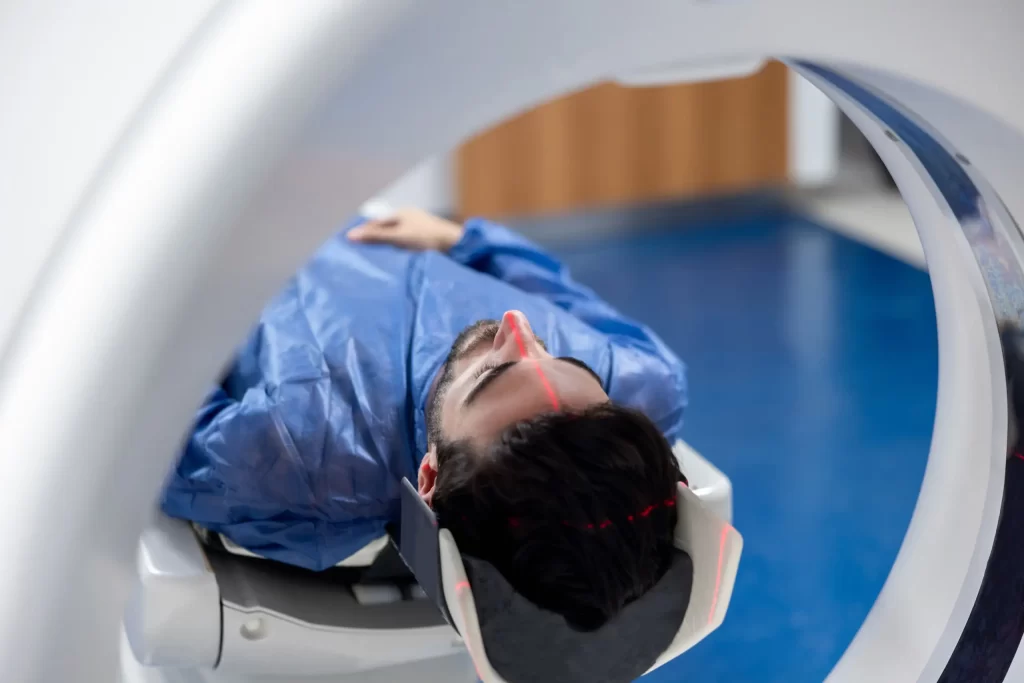Posted: 25/03/2025
Brain Tumour Awareness Month – March 2025
Reading Time: 3 minutes
March is Brain Tumour Awareness Month. More than 12,000 people are diagnosed with a primary brain tumour in the UK each year, of which about half are cancerous. These 12,000 diagnoses per year equate to around 35 new diagnoses each day. There are over 5,000 deaths due to brain tumours each year and since the early 2000s, the incidence rates of such tumours have increased by around a quarter (24%) in the UK across men and women.

Brain tumours can affect people of any age but such tumours are the biggest cancer killer of children and adults under 40. There are at least 88,000 children and adults living with a brain tumour in the UK currently and studies indicate that brain tumours reduce life expectancy by on average 27 years, which is the highest of any cancer.
Understanding Brain Tumours
A brain tumour is an abnormal growth or mass of cells in or around the brain. These tumours can be either malignant (cancerous) or benign (noncancerous). As they expand, they exert pressure on nearby brain tissues, disrupting their function and causing symptoms like the ones mentioned below.
What are symptoms of a Brain Tumour?
The symptoms of a brain tumour vary depending on the exact part of the brain affected.
Common symptoms include:
- Headaches
- Seizures (fits)
- Persistently feeling sick (nausea), being sick (vomiting) and drowsiness
- Mental or behavioural changes, such as memory problems or changes in personality
- Progressive weakness or paralysis on one side of the body
- Vision or speech problems
The Need for Increased Awareness
Despite its significant impact, brain tumour research is underfunded compared to other cancers. Over £700m is spent on cancer research in the UK every year, yet less than 3% is spent on brain tumours.

Organisations such as Brain Tumour Research and The Brain Tumour Charity work tirelessly to fund research, provide support, and lobby for increased government funding.
Public awareness campaigns like Brain Tumour Awareness Month play a vital role in educating people about the symptoms, encouraging early detection, and promoting the need for greater investment in research.
Who is at risk of Brain Tumours?
- Individuals who have been exposed to radiation
- Individuals who have a family history of Brain Tumours
- Individuals with a weakened immune system
- Individuals with certain inherited syndromes
How is a brain tumour diagnosed?
- Scans to look at your brain (MRI scan, CT scan, PET-CT scan)
- A test to look at a sample of brain tumour cells (biopsy)
- A test of your nervous system (neurological examination)
At Williamsons Solicitors, we deal with a large variety of Clinical Negligence compensation claims including missed and delayed diagnosis of brain tumours. Our specialist Clinical Negligence Department has more than 35 years’ combined experience in the field and we are recognised by top industry bodies including The Law Society.
If you or a family member have been a victim in any missed or delayed diagnosis of cancer by treatment received from the NHS, a Private hospital or any other health professional, please contact our experienced Clinical Negligence Department on 01482 323697 to discuss how we can help.
FRIENDLY, EFFICIENT LEGAL ADVICE
We’re ready to chat when you are
Drop us an email or give us a call for a no obligation chat to see if we can help.